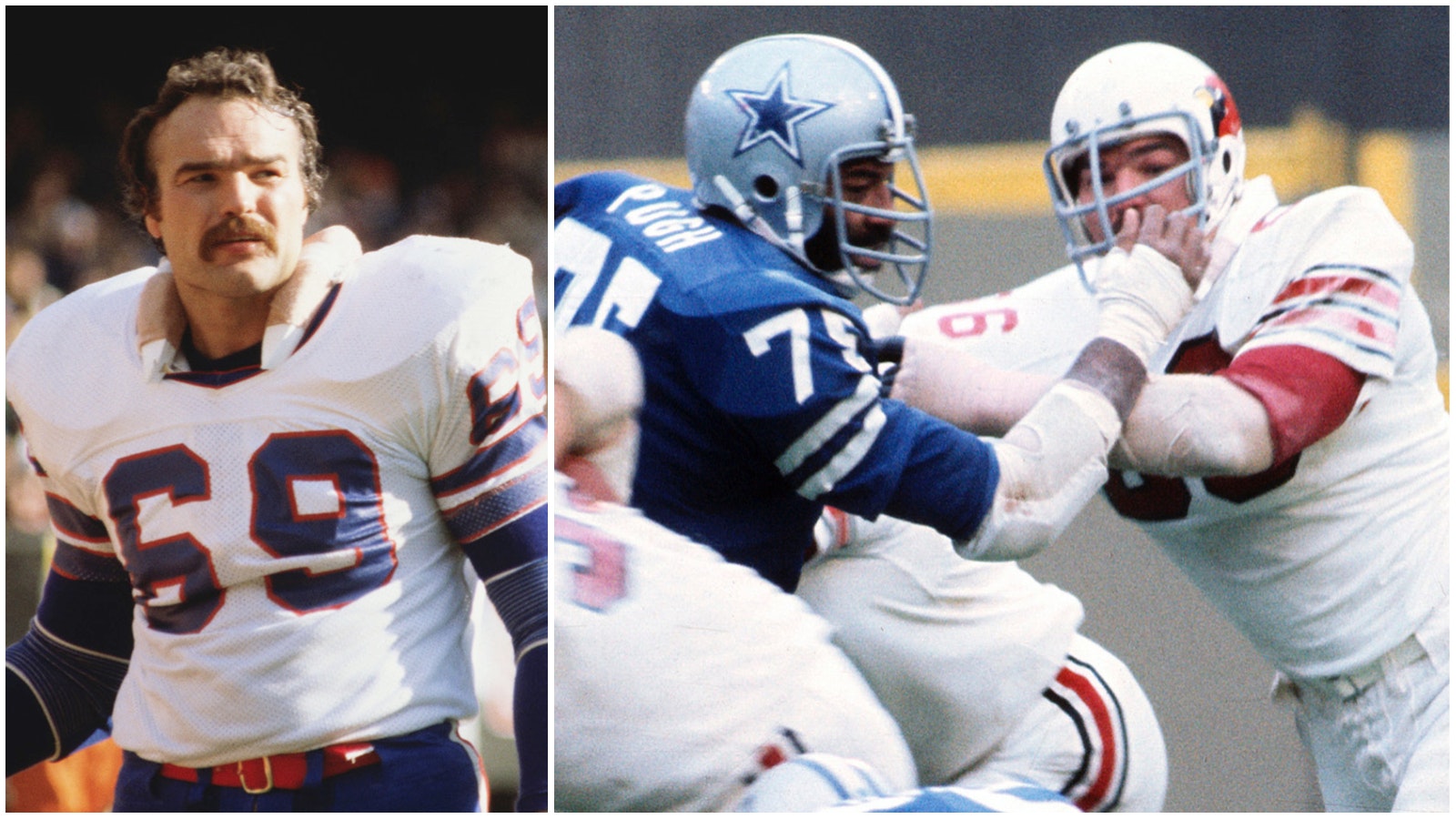Dubbed the “dirtiest player” in the NFL over his 10-year career with three teams, Conrad Dobler, 72, died Monday in Pueblo, Colorado.
After a standout career playing for the University of Wyoming from 1969-71, Dobler was a fifth-round pick by the St. Louis Cardinals.
He started all but four of the 129 games he played over a decade in the NFL for the Cardinals, New Orleans Saints and Buffalo Bills, and was named to three Pro Bowls.

‘Pro Football’s Dirtiest Player’
He also earned a reputation of doing whatever it took to protect his quarterback – whether it was allowed within the rules or not.
In an infamous 1977 Sports Illustrated cover story, Dobler was dubbed “Pro Football’s Dirtiest Player.”
From being accused of kicking LA Rams Hall of Fame defensive lineman Merlin Olsen in the head to punching Mean Joe Greene of the famed Iron Curtain of the Pittsburgh Steelers, Dobler never made excuses for his reputation.
“I’ll do anything I can get away with to protect my quarterback,” he told Sports Illustrated.
When asked, Dobler told SI that he didn’t break the rules any more than other players, but then “in the next breath he says that rules are made to be broken. … If you’re going to break the rules, you’ve got to have a little style and class.”

Once Made Another Player Cry
In 2016, Dobler was inducted into the St. Louis Sports Hall of Fame, where he recounted some of the infamous stories of his career.
About punching Mean Joe Greene, he said the 6-foot-4 defensive lineman practically asked for it.
A punch to the gut is “the best way to get the guy’s hands down,” Dobler said. “When they jump up to knock down a pass, the solar plexus is just so inviting.”
On another occasion, he broke down an opponent playing the Washington Redskins to the point of tears.
“It was so funny because he dropped to his knees and he started to cry,” Dobler said.
As for allegations he once spat on a player, he said that, “I don’t think I ever spit on the guy. Well … maybe I did, I don’t know.”
The Intimidation Factor
Asked about whether he would intimidate opponents on the field, Dobler said as his reputation grew, he didn’t have to. Opposing coaches would psyche out their own players ahead of time.
“I don’t think you can intimidate someone on the field, but I think because of the reputation and because of what the press made out of it, some of these coaches” would psyche them out, Dobler said. “They were intimidated before they walked on the field.”
‘He Was Always Proud Of Being A Wyoming Cowboy’
Kevin McKinney was the sports information director for the University of Wyoming when Dobler was a Cowboy and said he doesn’t remember him as a dirty player in college.
“When he was at Wyoming, he wasn’t quite what he ended up like in the NFL reputation-wise,” McKinney told Cowboy State Daily. “He played both ways and was probably almost a better defensive player than an offensive player.”
Despite moving on and finding national fame and acclaim in the NFL, McKinney said Dobler would return to UW often and even attend away games at times.
“He was always proud of being a Wyoming Cowboy,” McKinney said. “He would come to games on the road and come back to Wyoming. I know he was proud to be a Cowboy, and that’s always special to me.”
McKinney said he also got a kick out of following Dobler’s professional career after playing for the Cowboys.
“He was a character, that’s a fact, but he was just a good teammate and a good Wyoming player,” he said. “He was a good football player, but he was a better celebrity.
“It’s really interesting to see how he evolved and grew into the NFL.”
Dobler’s wife, Joy, died in 2018, and he’s survived by six children and 11 grandchildren.
His daughter Holli Dai, who lives in Kansas, Holli Dai, posted on her Facebook page about her father that, “In his final hours, he was surrounded by his family as they cheered on his favorite team, the Kansas City Chiefs, to win the Super Bowl.”





